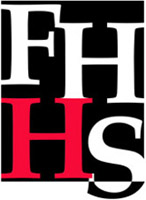
November 13, 2017
“Rescaling Colonial Life From the Indigenous to the Alien: The Late 20th Century Search for Human Biological Futures,“ follows the reach of colonial practices of natural history through genomics and into outer space. The article centers around biochemist and medical anthropologist Baruch Blumberg, who began his career collecting samples from colonial subjects in Surinam and ended it as head of the NASA program in Astrobiology. Joanna Radin’s history traces entwinements of colonial natural history, space exploration, and inductive methods in postwar biological science.
In the paper, Radin explores how frozen colonial pasts operate in the service of biological futures. Radin’s research refigures sample collection, induction and cryogenic suspension as modes of colonial science. Following histories of frozen blood samples collected from indigenous populations in the postwar period, Radin reveals a cryopolitics of “not letting die,” in the service of some future biological development. Radin’s impressive body of work offers unique contributions to the study of Cold War, postcolonial technoscience, genomics, big data, climate history, extinction, science fiction and speculative futures.
Radin deftly weaves a story of postwar scientific method with an account of postcolonial extraction. She shows how a colonial imaginary of frontier exploration and a scientific imaginary of induction, unite in a calling to “discover the unexpected.” Radin depicts Blumberg as a collector of samples, in the mode of a colonial natural historian, for whom the Pacific – and later the world, perhaps the solar system – figured as a living laboratory. Blumberg won the Nobel Prize for his work on Hepatitis B, derived from blood samples of indigenous peoples of the Pacific. As a NASA administrator, Blumberg harnessed a language of “new frontiers” – exploring where no one had yet gone – and language of basic science – seeking the unknown and following curiosity. He imagined a scientific exploration, the extraction and classification of new material, as capital to be realized in some biological future.
Radin elsewhere theorizes the temporalities involved in cryogenics, the freezing of biological matter. In this article, she explores a spatial scaling, from terrestrial colonial outposts to distant planets, from “indigenous human to the alien in biological science.” In keeping with her sensitivity to space and refoldings of the colonial past, Radin ends with a call, via Ursula Le Guin, to stop, turn one’s gaze from a frontier future and look down at one’s own roots.
Citation via Forum for History of Human Science